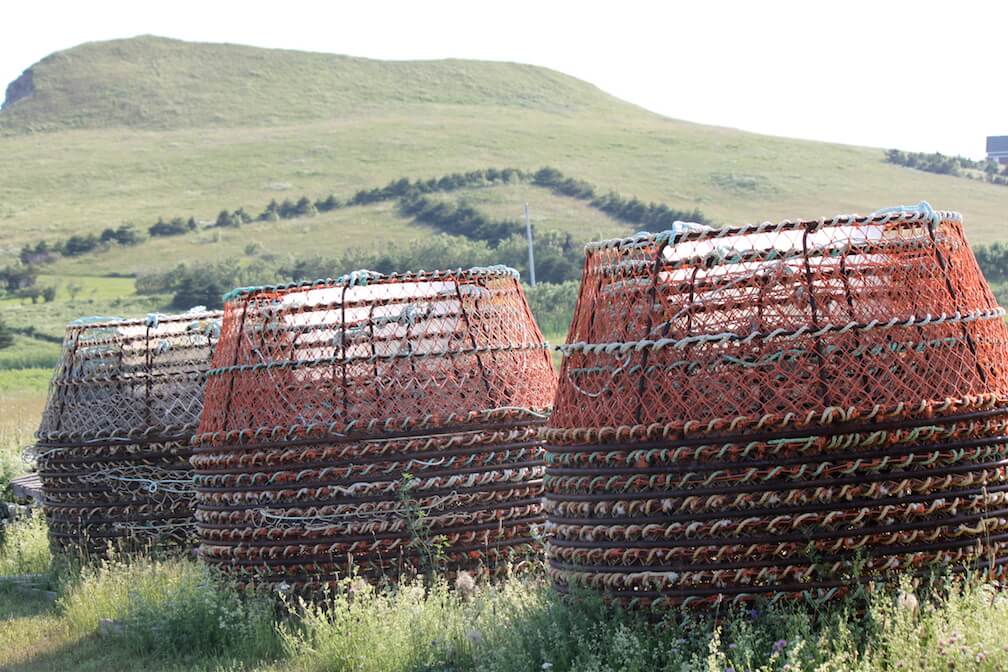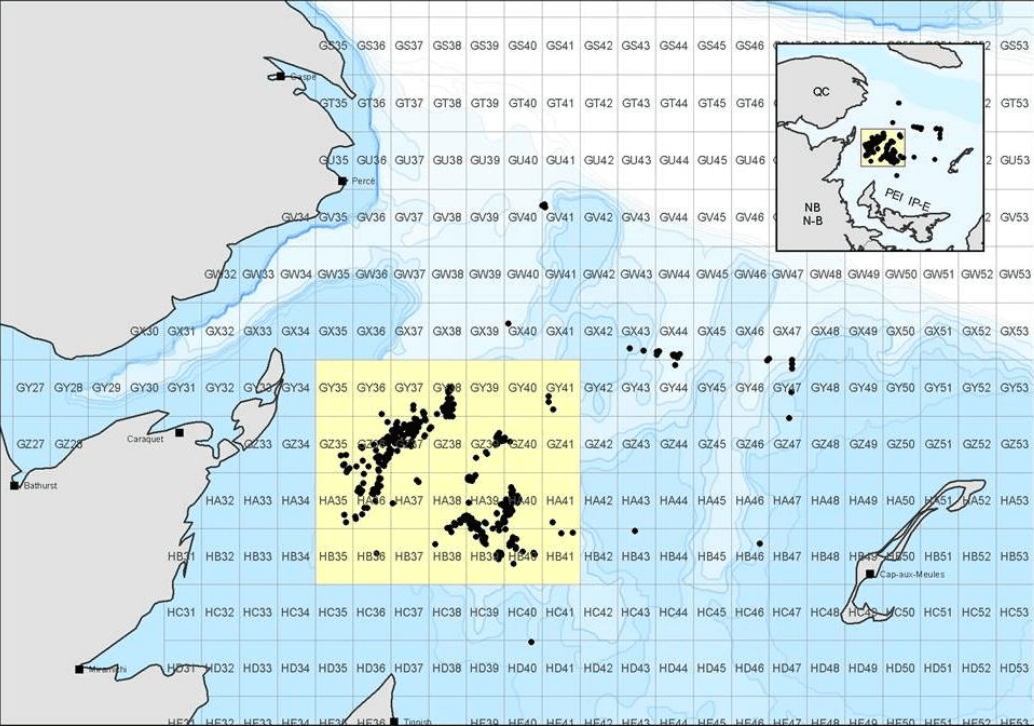Although changes made to the fishing season are of concern to many workers, be they fishermen or processing plant employees, the measures are essential for protecting this endangered species from the risks of entanglement. Additionally, protection of right whales is a key criterion for sustainable certification of seafood products, which is required for exports to the US in addition to being sought by Canadian consumers. At the present time, fishing has yet to begin everywhere due to prolonged ice cover and difficult weather conditions.
Amongst the measures announced, an area comprising nine fishing grids (2,400 km2) will be closed for a minimum of 15 days should a right whale be seen in a fishing area. Fishermen will have 48 hours following the advisory to remove their gear from the water.
Beginning April 28, a fishing area measuring 14,000 km2 will also be off limits. Last year, 90% of right whale sightings were made in this area. Nevertheless, this does not necessarily mean that the whales will be in the same place this summer.
“There is no fail-safe measure,” points out Sean Brillant, senior conservation biologist at the Canadian Wildlife Federation. “Closing such a large area is a bold move, and I believe it can be a win-win compromise for everyone.”
The mandatory speed reduction will also be in effect once again this year, specifically from April 28 to November 15. Ships measuring 20 m and over must not exceed speeds of 10 knots (18.5 km/h) in the western portion of the Gulf of St. Lawrence. This measure has repeatedly been recognized for its effectiveness in different parts of the world to prevent ship strikes and, in the event of a collision, to reduce the risk of a fatality.
In Prince Edward Island, lobster fishermen in Zone 24 have decided to take right whale protection one step further by grouping multiple cages on a single line and thereby reducing the number of rope lines deployed. According to them, this will eliminate approximately 16,000 buoys, each of which had 39 to 42 metres of rope.






